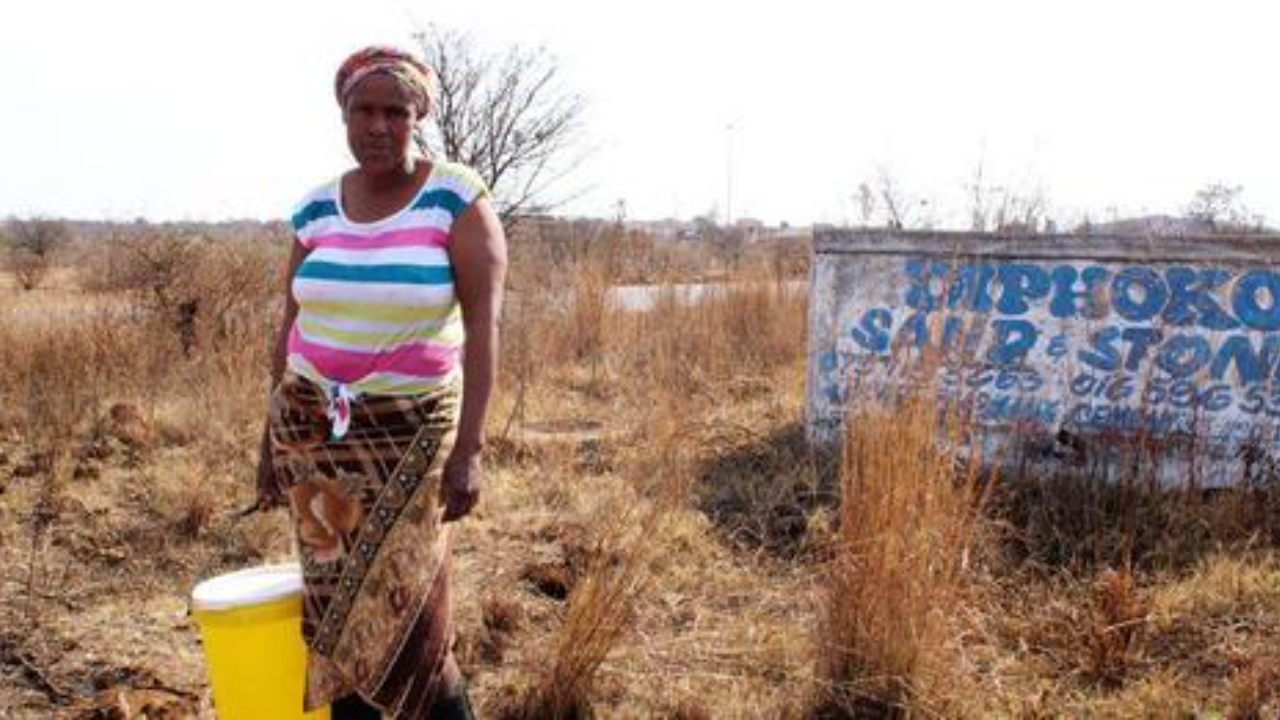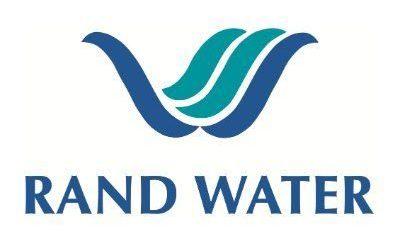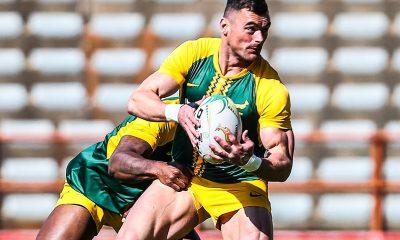News
Waterdal’s Water Woes: Farmers’ Struggles

In the southern reaches of Gauteng, adjacent to Evaton, lies the community of Waterdal. Once a bastion of agricultural livelihoods, this locale now grapples with a dire predicament that has persistently intensified over three years: an inconsistent water supply. A stark reality has taken root, rendering the pursuit of farming endeavours almost unattainable for its inhabitants.
Puseletso Moloko, a resident living within this backdrop, undertakes a remarkable daily feat. In her relentless quest for water, she embarks on six journeys to a water pump marred by vandalism, hauling her 20-litre buckets as reported by Food for Mzansi. The arduous trek to the essential borehole spans approximately two kilometres, necessitating a traverse across a railway line as written by author Masego Mafata.
Also Read: Spanish Football Chief Criticised for Post-Match Lip Kiss with Player
Moloko, the breadwinner for a household of four, including two young children, narrates the strain of securing sustenance. She describes the routine of gathering 14 buckets of water every other day, a supply that suffices for cooking, cleaning, and laundering needs.
This struggle is a departure from a more hospitable past. Moloko recollects the era when water flowed intermittently, primarily during the odd night hours, obligating residents to awaken at 3 am for basic tasks. The situation, however, spiralled into despair around the year 2020 as the taps turned dry, and the prospect of accessing water receded into a distant memory.
Yet, perplexity deepens when one examines the presence of plumbing infrastructure within homes, juxtaposed with the complete absence of water when taps are opened—a source of intense exasperation for Moloko and her fellow residents.
Waterdal’s plight originates within the troubled bounds of the Emfuleni Local Municipality. Famed for inadequacies in service delivery, the municipality has been a recurrent subject of reproach due to the deplorable state of water services and the proliferation of sewerage leaks, which taint the Vaal River.
A pivotal gathering in September 2022, convened between the municipality’s leadership and local enterprises, saw the Department of Water and Sanitation’s justice Maluleke pinpoint a distressing fact: “44 pump stations within Emfuleni Local Municipality that are critical and not working.”
However, This water crisis is not an isolated instance; it is just one facet of a larger issue. Emfuleni faces a significant challenge with water leaks and losses, as evidenced by a staggering R700-million in water losses incurred by the indebted municipality during the financial year 2021/22, as reported by the Vaalweekblad in April 2023.
The financial woes and administrative malaise have precipitated the intervention of major utility players, Rand Water and Eskom. The ballooning debt, intertwined with maladministration, catalysed the transition of these utilities to the forefront of service delivery in Emfuleni.
In a proactive response, Rand Water orchestrated the deployment of 17 water trucks in 2022 to service regions within Emfuleni, including Waterdal. However, the residents’ testimonies bear a sombre refrain—these life-sustaining deliveries often oscillate between inconsistency and prolonged waits of a week or more. Consequently, resourcefulness has become necessary as community members venture forth to fetch water from leaky pipes, desecrated pumps, and quarries.
Mamaisa Mbele, a resident and facilitator associated with Asivikelane—an organisation dedicated to confronting service delivery predicaments—cautions against the dire circumstances some face while collecting water from unsanitary sources.
In the throes of desperation, some residents resort to a disheartening practice: direct payment to the government’s water truck drivers for water delivery. Mbele herself recounts parting with R100 to secure this fundamental need. A disheartening truth emerges—a strained populace, already burdened, grapples with a financial burden in exchange for a basic human right.
Amid these challenges, a few individuals have procured their own water tanks, while others, financially able, delve into the installation of boreholes shared among neighbours.
The ordeal extends its grasp to those like Mduduzi Tshabalala, who coexists with partner Mamosweu Tsoabi and Dineo Tsoabi, a custodian of a farming and community empowerment venture called Serapeng sa Basadi. Their agrarian aspirations are stifled by the inconsistent water supply, rendering the cultivation and maintenance of crops a formidable feat.
As hope intertwines with adversity, a petition surfaces, a plea to water and sanitation minister Senzo Mchunu to mend the water crisis in Waterdal. Mofubetsoane, a resident since 2006, attributes the worsening of water woes to the burgeoning population in adjacent informal settlements, revealing a mismatch between infrastructure and growth.
In the heart of this turmoil, Ward 36 Councillor Mpho Kodisang acknowledges the municipality’s efforts while acknowledging the hurdles impeding resolution. Delayed payments to service providers, further exacerbated by account attachments from the municipality’s debtors, hinder the process. Despite these challenges, proactive engagement is underway as Kodisang converses with relevant authorities to tackle Waterdal’s affliction.
As a testament to the complexity of the crisis, the article concludes on an unanswered note—queries directed at the Emfuleni Local Municipality remain without response, symbolic of the community’s own plea for solutions that remain elusive.
Also Read:
Follow us on Google News
Photo: Facebook / @Food For Mzansi






















